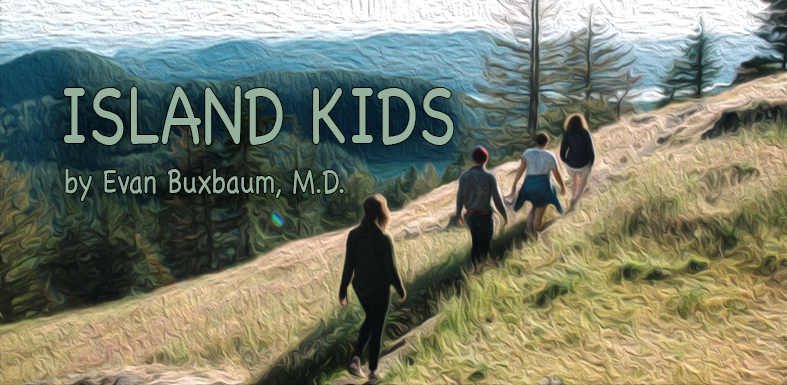||| ISLAND KIDS BY EVAN BUXBAUM, M.D. |||
Long before Coronavirus became a household name- and a household lockdown- Respiratory Syncytial Virus (RSV) topped the list of viruses that we worried about for our youngest children, as well as older and immunocompromised people. After years of waiting, we now have several effective new tools to protect our most vulnerable from this infection, with 3 new shots coming online in time for this fall/winter RSV season.
For most people RSV presents as a common cold, albeit a nasty one. The usual symptoms include cough, runny nose, congestion and a low grade fever. This is a very common infection, with most children contracting the virus before age two, and reinfection even as an adult is to be expected. It’s highly contagious, with each case infecting between five and 25 other people through respiratory droplets spread through coughing, sneezing or speaking, as well as contact with the virus on hands or on surfaces for up to hours after contact.
Most people get through RSV with moderate but tolerable symptoms, but in infants and young children RSV infection is sometimes much more serious. It can lead to a more concerning condition called bronchiolitis, in which fluid in the small airways makes breathing difficult and can lead to respiratory distress in babies. In fact, RSV infection is the leading cause of hospitalization for children under 5 in the United States. Premature babies and infants in the first few months of life are especially vulnerable.
Signs to bring your infant or child in to be examined are sustained fast breathing, noticeable difficulty breathing, or retractions, which look like a visible tugging on the skin above the collarbones, between the ribs or under the sternum (breastbone) while breathing in. Other concerning signs that should prompt medical attention include a fever beyond or with onset after the first three – four days of the illness, lethargy, or apneic spells, which are periods of several seconds where the baby stops breathing. Any fever over 100.4F (38C) in a baby younger than two months should always prompt immediate medical attention.
The good news is that starting this year there are two new ways to protect infants from RSV, and also two new vaccines to protect older individuals. The first protection for babies is a single vaccine, Abrysvo, which is actually given to pregnant mothers in their 32nd to 36th weeks of pregnancy during the months of September through
January. As long as the shot is given 14 days before birth, the baby should be protected from infection through their first RSV season.
If the Abrysvo isn’t administered to the pregnant mother, then the CDC recommends the single dose Beyfortus shot, which is actually not a vaccine but what is called a monoclonal antibody immunization. This immunization, given once as a single shot, is recommended for all infants under 8 months old who are either in or entering their first RSV season, as well as higher risk children in their second RSV season.
There is a shortage of Beyfortus vaccine right now, so for the moment the CDC is prioritizing babies under six months, with the exception of infants up to eight months with health conditions that put them at higher risk or are Native American/Alaska Native. As more Beyfortus becomes online it will be available for all infants under 8 months of age.
The other good news is that for people over the age of 60, there are two new vaccines, Arexvy and Abrysvo, which are very effective at preventing severe RSV disease in adults. Talk with your provider to discuss RSV vaccination.
Many clinics won’t have the RSV immunizations in during this season, so check with your provider for guidance on how to protect yourselves and your family from RSV, or contact the San Juan County Department of Public Health at sanjuanpublichealth.org/vaccine-information. For the first time we now have effective and generally available protection from this virus, so consider RSV prophylaxis for the youngest and oldest in our community.
Stay safe and take good care of yourselves.
**If you are reading theOrcasonian for free, thank your fellow islanders. If you would like to support theOrcasonian CLICK HERE to set your modestly-priced, voluntary subscription. Otherwise, no worries; we’re happy to share with you.**







